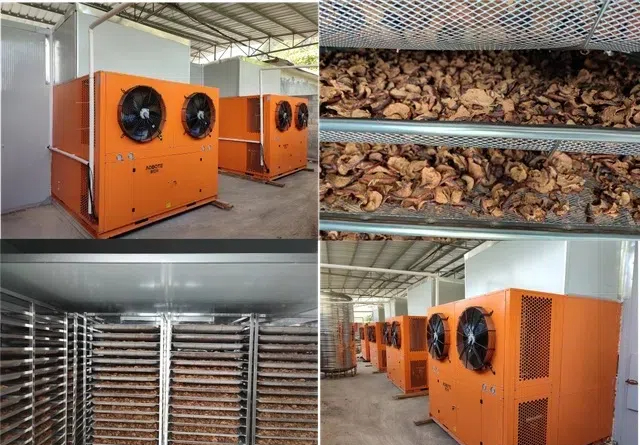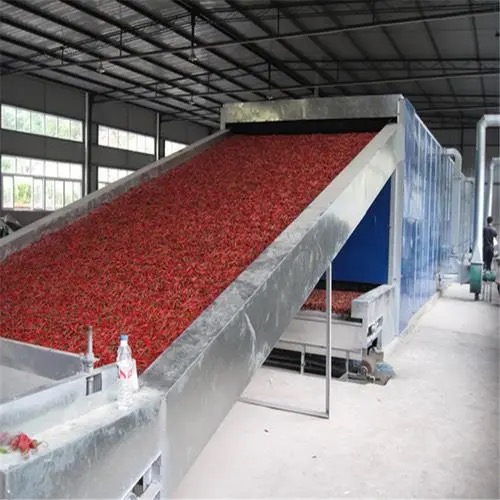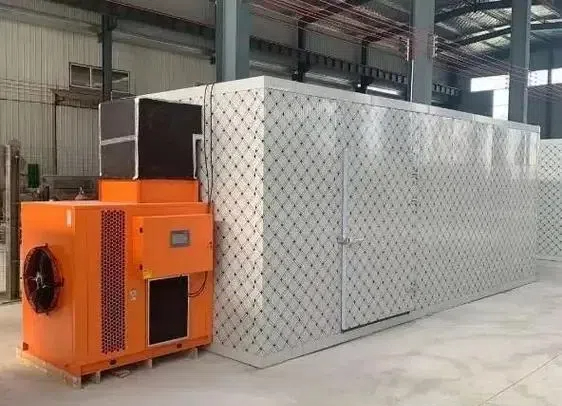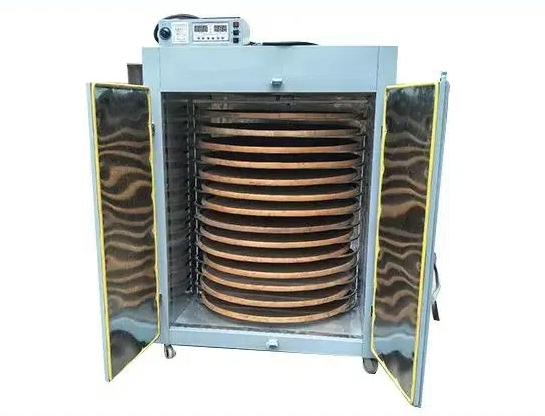
Content Menu
● Introduction to Food Drying Technology
● The Importance of Food Drying Processing Machines
>> Types of Food Drying Processing Machines
● Advancements in Food Drying Processing Machine Technology
>> Spray Drying Machines
>> Osmotic Dehydration Process
>> Vacuum Drying Technology
>> Solar Food Drying Systems
>> Smart Food Processing Equipment
● The Impact of Food Drying Processing Machines on Food Quality
>> Preserving Nutritional Value
>> Maintaining Color and Flavor
>> Improving Texture
>> Enhancing Food Safety
● Applications of Food Drying Processing Machines in Various Industries
>> Fruit and Vegetable Processing
>> Dairy Industry
>> Meat and Fish Processing
>> Beverage Industry
>> Pharmaceutical and Nutraceutical Industries
● Challenges and Future Trends in Food Drying Processing Machines
>> Energy Efficiency
>> Product Quality
>> Automation and Smart Technology
>> Sustainability
● Conclusion
● Frequently Asked Questions
>> 1. Q: What is the main purpose of food drying processing machines?
>> 2. Q: How do freeze-drying machines work?
>> 3. Q: What are the advantages of using solar food drying systems?
>> 4. Q: How does spray drying differ from other drying methods?
>> 5. Q: What factors should be considered when choosing a food drying processing machine?
Introduction to Food Drying Technology
Food drying is one of the oldest and most effective methods of food preservation. Over the centuries, this technique has evolved from simple sun-drying to sophisticated food drying processing machines that can handle large-scale industrial operations. Today, food drying processing machines play a crucial role in the food industry, ensuring food safety, extending shelf life, and preserving nutritional value.
The Importance of Food Drying Processing Machines
Food drying processing machines have become indispensable in modern food production. These machines remove moisture from food products, inhibiting the growth of bacteria, yeasts, and molds, thus extending shelf life. Moreover, they reduce the weight and volume of food products, making transportation and storage more efficient and cost-effective.
Types of Food Drying Processing Machines
There are various types of food drying processing machines, each suited for different applications:
1. Industrial Food Dehydrators
Industrial food dehydrators are large-scale machines designed for commercial food production. They use controlled heat and air flow to remove moisture from food products efficiently.
2. Freeze-Drying Technology
Freeze-drying, also known as lyophilization, is a sophisticated drying method that preserves the structure and nutritional content of food. This technology is particularly useful for preserving heat-sensitive foods.
3. Energy-Efficient Food Dryers
As sustainability becomes increasingly important, energy-efficient food dryers are gaining popularity. These machines use advanced technologies to minimize energy consumption while maintaining high drying efficiency.
4. Convection Drying Systems
Convection drying systems use hot air circulation to remove moisture from food products. They are versatile and can be used for a wide range of food items.
5. Microwave Drying Equipment
Microwave drying is a rapid and efficient method that uses electromagnetic waves to heat food products from the inside out, resulting in faster drying times.

Advancements in Food Drying Processing Machine Technology
The field of food drying technology is constantly evolving, with new innovations enhancing efficiency, product quality, and sustainability.
Spray Drying Machines
Spray drying is a method of producing a dry powder from a liquid or slurry by rapidly drying with hot gas. This technology is widely used in the food industry for products like powdered milk, instant coffee, and flavoring agents.
Osmotic Dehydration Process
Osmotic dehydration is a pre-treatment process that involves immersing food in a concentrated solution to remove water and impregnate the food with solutes. This process can enhance the efficiency of subsequent drying methods.
Vacuum Drying Technology
Vacuum drying technology allows for drying at lower temperatures, which is beneficial for heat-sensitive products. This method can help preserve the color, flavor, and nutritional value of dried foods.
Solar Food Drying Systems
As the world moves towards renewable energy sources, solar food drying systems are gaining traction. These systems harness solar energy to dry food products, making them particularly useful in regions with abundant sunlight and limited access to electricity.
Smart Food Processing Equipment
The integration of Internet of Things (IoT) technology and artificial intelligence has led to the development of smart food processing equipment. These advanced food drying processing machines can monitor and adjust drying parameters in real-time, ensuring optimal results and consistency.
The Impact of Food Drying Processing Machines on Food Quality
Food drying processing machines have a significant impact on the quality of dried food products. When used correctly, these machines can:
1. Preserve nutritional value
2. Maintain color and flavor
3. Improve texture
4. Enhance food safety
Preserving Nutritional Value
Modern food drying processing machines are designed to minimize nutrient loss during the drying process. For example, freeze-drying technology can retain up to 97% of the original nutritional content of food.
Maintaining Color and Flavor
Advanced drying technologies, such as vacuum drying and freeze-drying, can help preserve the natural color and flavor of food products. This is particularly important for fruits and vegetables, where appearance and taste are crucial factors for consumer acceptance.
Improving Texture
Different food drying processing machines can produce varied textures in dried foods. For instance, spray drying can create fine, uniform powders, while freeze-drying can maintain the original structure of the food, resulting in a crisp, light texture upon rehydration.
Enhancing Food Safety
By removing moisture, food drying processing machines create an environment inhospitable to microorganisms, thus enhancing food safety and extending shelf life.

Applications of Food Drying Processing Machines in Various Industries
Food drying processing machines find applications across various sectors of the food industry:
Fruit and Vegetable Processing
Dried fruits and vegetables are popular snacks and ingredients. Food drying processing machines are used to create products like dried apples, raisins, and vegetable powders.
Dairy Industry
In the dairy industry, spray drying machines are used to produce powdered milk, whey protein, and other dairy-based powders.
Meat and Fish Processing
Drying is an important preservation method for meat and fish products. Food drying processing machines are used to create products like jerky, dried fish, and pet food.
Beverage Industry
The beverage industry uses food drying processing machines to create instant coffee, tea, and other powdered drink mixes.
Pharmaceutical and Nutraceutical Industries
While not strictly food-related, the pharmaceutical and nutraceutical industries also use food-grade drying processing machines to create powdered supplements and medications.
Challenges and Future Trends in Food Drying Processing Machines
Despite the many advancements in food drying technology, there are still challenges to overcome and trends shaping the future of the industry.
Energy Efficiency
Improving the energy efficiency of food drying processing machines remains a key challenge. Future developments are likely to focus on reducing energy consumption while maintaining or improving drying efficiency.
Product Quality
Maintaining the quality of dried products, especially in terms of nutrition, flavor, and texture, is an ongoing challenge. Research is continually being conducted to develop new drying methods that can better preserve these qualities.
Automation and Smart Technology
The integration of automation and smart technology in food drying processing machines is a growing trend. This includes the use of sensors, data analytics, and machine learning to optimize drying processes.
Sustainability
As sustainability becomes increasingly important, there is a growing focus on developing eco-friendly drying technologies. This includes the use of renewable energy sources and the development of more efficient drying processes.
Conclusion
Food drying processing machines have come a long way from traditional sun-drying methods. Today, they play a crucial role in the food industry, enabling the production of a wide range of dried food products. As technology continues to advance, we can expect to see even more innovative and efficient food drying processing machines in the future, further revolutionizing food preservation and processing.

Frequently Asked Questions
1. Q: What is the main purpose of food drying processing machines?
A: The main purpose of food drying processing machines is to remove moisture from food products, which helps to extend shelf life, preserve nutritional value, and prevent the growth of microorganisms that cause spoilage.
2. Q: How do freeze-drying machines work?
A: Freeze-drying machines work by first freezing the food and then reducing the surrounding pressure to allow the frozen water in the food to sublimate directly from the solid phase to the gas phase.
3. Q: What are the advantages of using solar food drying systems?
A: Solar food drying systems are environmentally friendly, cost-effective in the long run, and particularly useful in areas with limited access to electricity. They harness renewable solar energy to dry food products.
4. Q: How does spray drying differ from other drying methods?
A: Spray drying involves atomizing a liquid feed into a hot drying medium, usually air, to produce a fine powder. This method is particularly useful for drying liquids and slurries, unlike other methods that typically dry solid foods.
5. Q: What factors should be considered when choosing a food drying processing machine?
A: Factors to consider include the type of food being dried, desired production capacity, energy efficiency, space requirements, initial investment cost, and the specific quality attributes you want to maintain in the dried product.












